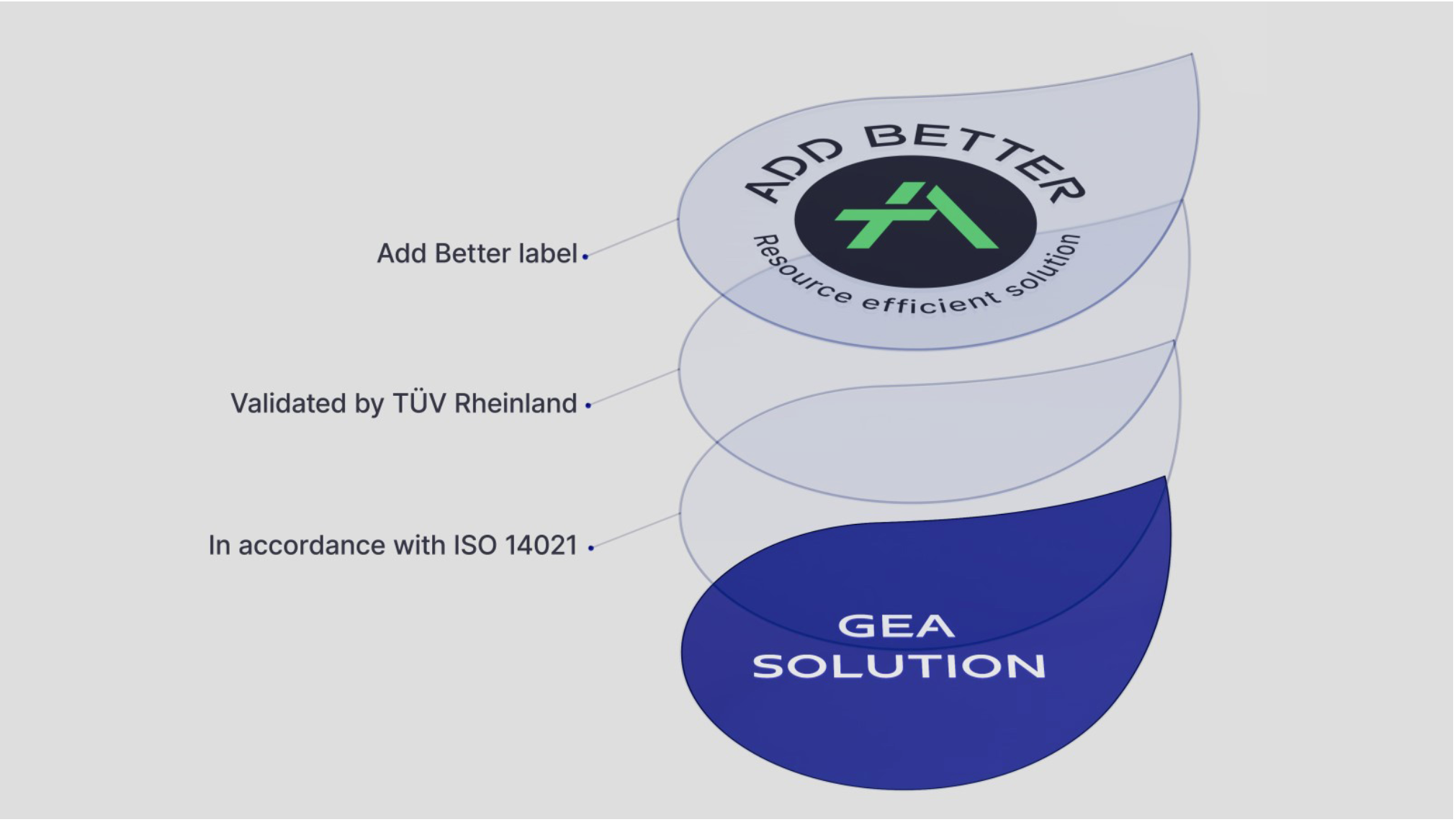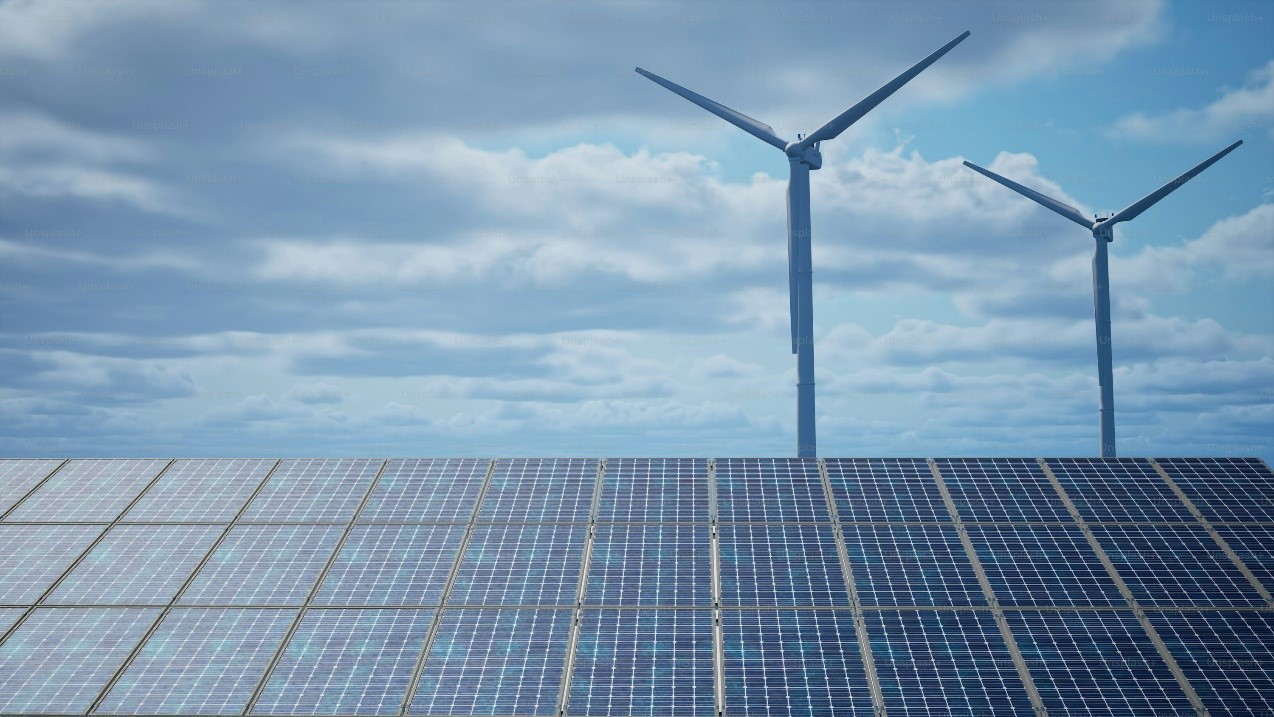
- Add Better label promotes GEA sustainable solutions that are significantly more resource-efficient than their predecessors
- Efficiency improvements are calculated according to ISO standards and validated by TÜV Rheinland, a global leader in independent testing, inspection and certification services
- Maximum transparency: GEA customers can access the data behind each Add Better label
- GEA’s AddCool Spray Dryer, Marine Separator and Dairy Robot are the first solutions to receive the Add Better label
The label provides customers with a detailed overview of the improvements made, including how the Add Better product can help them reduce their ecological impact and reduce operating costs. GEA’s Add Better product evaluation process – from data collection to calculation and documentation – follows the ISO 14021:2016 requirements for environmental labels and declarations. GEA’s approach has been validated by TÜV Rheinland, one of the world’s leading testing service providers.
“Every day, our purpose ‘Engineering for a better world’ drives us to develop solutions, that use less energy, water and raw materials and produce less waste. The Add Better label identifies the most significant advances we are making in this area,” says GEA Group CEO Stefan Klebert. “These product upgrades can significantly improve our customers’ resource and operational efficiency as well as help all of us achieve our sustainability targets.”
TÜV Rheinland validates GEA’s approach
The process underlying GEA’s Add Better label process meets the ISO requirements for self-declared environmental claims, including specific evaluation and verification methodologies. The first step in the process is the selection of the solution to be evaluated by an interdisciplinary team of GEA experts, including a detailed description of the technology and its application. GEA then defines the technical, geographical and temporal scope of the solution and its assessment. On this basis, relevant data about the technology and its predecessor is collected and verified. The process of data collection, calculation and detailed documentation of results was developed in collaboration with TÜV Rheinland. As a final step, GEA’s Global Executive Committee reviews the results to make sure the efficiency gains are significant enough to merit the Add Better label. The process is designed to ensure optimum transparency for GEA customers.
“Innovative solutions are crucial in achieving global climate targets, reliable and trustworthy ecolabels are increasingly relevant as a way to inform customers and provide guidance for companies in their procurement process,” emphasizes Susanne Jorre, TÜV Rheinland’s sustainability expert who is leading GEA’s project. “We were pleasantly surprised by GEA’s decision to seek additional, external validation even though it is not necessary for this type of ecolabel. However, from the onset of the process, it became very clear that for GEA sustainability is more than just talk.”







